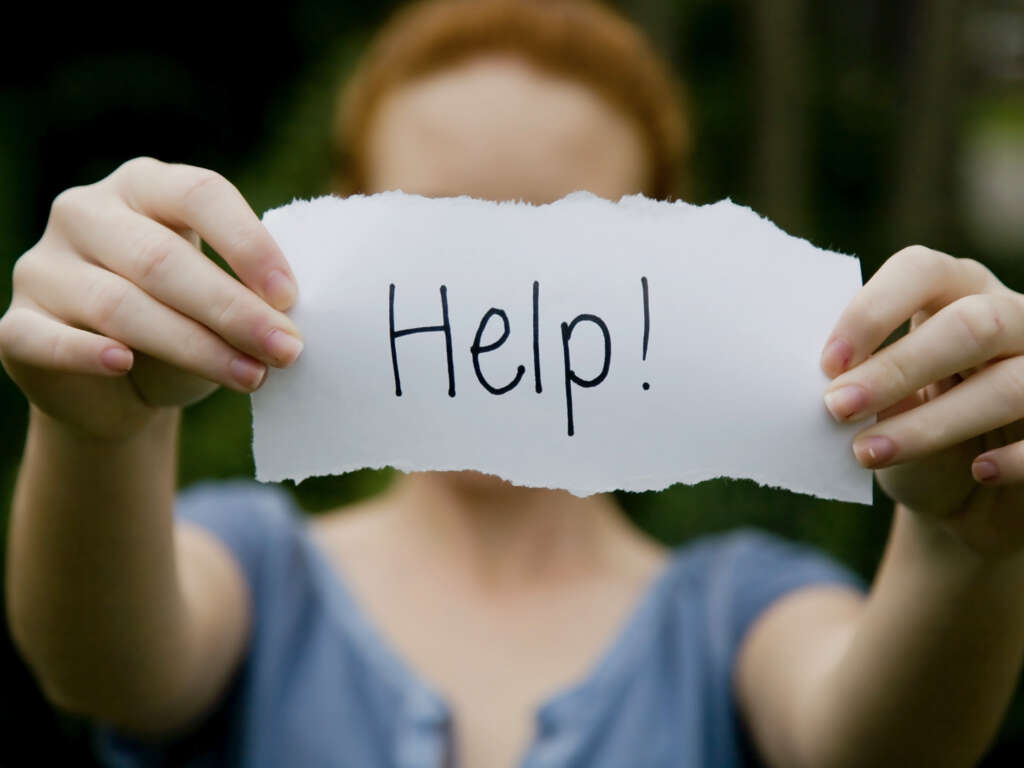Manic Episode Definition, Symptoms and More
 Article Sources
Article Sources
- 1. NHS Choices, NHS, www.awp.nhs.uk/advice-support/conditions/hypomania-and-mania/.
- 2. Diagnostic and Statistical Manual of Mental Disorders: DSM-5. American Psychiatric Association, 2017, medicaidmentalhealth.org, www.medicaidmentalhealth.org//assets/file/Guidelines/2017-2018 Treatment of Adult Bipolar Disorder.pdf.
- 3. 'Bipolar Disorder.' Mayo Clinic, Mayo Foundation for Medical Education and Research, 16 Feb. 2021, www.mayoclinic.org/diseases-conditions/bipolar-disorder/symptoms-causes/syc-20355955.
- 4. Publishing, Harvard Health. 'Bipolar Disorder (Manic Depressive Illness or Manic Depression).' Harvard Health, Harvard University, Mar. 2019, www.health.harvard.edu/a/to/z/bipolar-disorder-manic-depressive-illness-or-manic-depression-a-to-z.
- 5. 'Bipolar Disorder: Helping Someone During a Manic Episode.' Bipolar Disorder: Helping Someone During a Manic Episode | Michigan Medicine, www.uofmhealth.org/health-library/aa167725.
A manic episode is an abnormal sense of well being, energy or irritability that lasts a week or longer. The extreme highs experienced by someone having manic episodes can interfere with decision making, focus and typical behavior. They may engage in risky or harmful actions that damage their reputations and relationships.1NHS Choices, NHS, www.awp.nhs.uk/advice-support/conditions/hypomania-and-mania/.
A manic episode is not the same as a high caused by drug use or a mood swing caused by another medical disorder. A person can't control having manic episodes, but luckily there is lots of information and potential treatments available to help manage the condition.2Diagnostic and Statistical Manual of Mental Disorders: DSM-5. American Psychiatric Association, 2017, medicaidmentalhealth.org, www.medicaidmentalhealth.org//assets/file/Guidelines/2017-2018 Treatment of Adult Bipolar Disorder.pdf.

1. Symptoms of Manic Episodes
A person experiencing a manic episode may have an unusually inflated sense of self esteem and motivation. They may work more than usual on goals, their career, school work or at random, seemingly aimless activities. However, they may also have racing thoughts, flightiness, irritability or become easily distracted. Speech can be faster than usual.
A particularly noticeable symptom is that a person in a manic episode may only sleep for a few hours a day. Plans pursued during a manic episode are often unrealistic and the person may over spend, have unsafe or compulsive sex or engage in other risky behavior.2Diagnostic and Statistical Manual of Mental Disorders: DSM-5. American Psychiatric Association, 2017, medicaidmentalhealth.org, www.medicaidmentalhealth.org//assets/file/Guidelines/2017-2018 Treatment of Adult Bipolar Disorder.pdf.

2. Hypomanic Episode
If a person is experiencing unexplained heightened moods, persistent high energy and unusual behavior for four or more consecutive days but less than a week, that is not usually considered a manic episode. But it could be a hypomanic episode.
Some people experience both manic and hypomanic episodes. Often hypomanic episodes are less extreme than manic episodes. However, hypomanic episodes could be a symptom of a serious mood disorder like Bipolar Type 2.2Diagnostic and Statistical Manual of Mental Disorders: DSM-5. American Psychiatric Association, 2017, medicaidmentalhealth.org, www.medicaidmentalhealth.org//assets/file/Guidelines/2017-2018 Treatment of Adult Bipolar Disorder.pdf.

3. Causes of Manic Episodes
Not all causes of manic episodes are fully understood. It's believed that genetics plays a role. Those who have a sibling or parent with manic episodes are more likely to experience them. People with manic episodes also often have biological differences in their brains.3‘Bipolar Disorder.’ Mayo Clinic, Mayo Foundation for Medical Education and Research, 16 Feb. 2021, www.mayoclinic.org/diseases-conditions/bipolar-disorder/symptoms-causes/syc-20355955.
A first episode could be triggered by alcohol or drug use. But elevated mood and risk taking behaviors directly caused by medication, drug or alcohol use are not considered a manic episode.2Diagnostic and Statistical Manual of Mental Disorders: DSM-5. American Psychiatric Association, 2017, medicaidmentalhealth.org, www.medicaidmentalhealth.org//assets/file/Guidelines/2017-2018 Treatment of Adult Bipolar Disorder.pdf.

4. Manic Episodes or Bipolar Disorder
Manic episodes are often associated with Bipolar Type 1 and in order to be diagnosed with this type of bipolar disorder, someone has to have experienced at least one manic episode.2Diagnostic and Statistical Manual of Mental Disorders: DSM-5. American Psychiatric Association, 2017, medicaidmentalhealth.org, www.medicaidmentalhealth.org//assets/file/Guidelines/2017-2018 Treatment of Adult Bipolar Disorder.pdf. However, manic episodes or similar symptoms can occur in people who do not have bipolar disorder.
It can be difficult to distinguish manic episodes from heightened moods associated with other conditions. That's why it's important to see a doctor who can help identify the condition and provide proper treatment.4Publishing, Harvard Health. ‘Bipolar Disorder (Manic Depressive Illness or Manic Depression).’ Harvard Health, Harvard University, Mar. 2019, www.health.harvard.edu/a/to/z/bipolar-disorder-manic-depressive-illness-or-manic-depression-a-to-z.

5. Diagnosing Manic Episodes
A person who is concerned with their moods or has had loved ones express concern should see a doctor. A physical exam can help rule out medical problems that could be affecting mood. If the cause can't be found medically, a doctor may recommend a psychiatrist.
The psychiatrist may look at the person's symptoms over time and refer to the Diagnostic and Statistical Manual of Mental Disorders (DSM-5) to see if symptoms match up with bipolar or another manic condition.3‘Bipolar Disorder.’ Mayo Clinic, Mayo Foundation for Medical Education and Research, 16 Feb. 2021, www.mayoclinic.org/diseases-conditions/bipolar-disorder/symptoms-causes/syc-20355955.

6. Depression and Mania
Not all people with manic episodes have depressive episodes, but many do. Some people can cycle rapidly between manic and depressive episodes, others may experience mostly depression with few manic episodes and still others may not experience noticeable symptoms of depression or mania between episodes.4Publishing, Harvard Health. ‘Bipolar Disorder (Manic Depressive Illness or Manic Depression).’ Harvard Health, Harvard University, Mar. 2019, www.health.harvard.edu/a/to/z/bipolar-disorder-manic-depressive-illness-or-manic-depression-a-to-z.
For people who experience depression alongside hypomanic or manic episodes, the sadness, fatigue and difficulty finding hope can be overwhelming. Poor decisions made during manic episodes can add to the stress and feelings of isolation.3‘Bipolar Disorder.’ Mayo Clinic, Mayo Foundation for Medical Education and Research, 16 Feb. 2021, www.mayoclinic.org/diseases-conditions/bipolar-disorder/symptoms-causes/syc-20355955.

7. When to Seek Medical Help
Someone in a manic episode may not initially realize there's a problem. But episodes can get more serious and they rarely stop completely on their own.
People with manic episodes are rarely violent or dangerous. But if a person in or coming down from a manic episode is at risk of hurting themselves or someone else, emergency services should be called to help. Suicide is a real concern with bipolar and other mood disorders.3‘Bipolar Disorder.’ Mayo Clinic, Mayo Foundation for Medical Education and Research, 16 Feb. 2021, www.mayoclinic.org/diseases-conditions/bipolar-disorder/symptoms-causes/syc-20355955.

8. Treatments for Manic Episodes
There are many treatments that can ease and prevent manic episodes. Mood stabilizing medication is one of the most common. Psychiatrists may prescribe a combination of medications, regularly or as needed.
Electroconvulsive therapy is also effective, but is rarely used when medication is sufficient. It could take a few tries to determine the best treatment for an individual.2Diagnostic and Statistical Manual of Mental Disorders: DSM-5. American Psychiatric Association, 2017, medicaidmentalhealth.org, www.medicaidmentalhealth.org//assets/file/Guidelines/2017-2018 Treatment of Adult Bipolar Disorder.pdf.

9. How to Help Someone in a Manic Episode
Loved ones of someone who is experiencing manic episodes may be concerned or frustrated by their behavior. It's important to remember that manic episodes are a condition that requires medical assistance. They aren't anyone's fault and sometimes only doctors can help.
Someone in a manic episode may not sleep or eat properly and providing easy meals or quiet spaces could be helpful. Loved ones should be honest but arguments and debates are often unproductive when someone is in a manic episode.5‘Bipolar Disorder: Helping Someone During a Manic Episode.’ Bipolar Disorder: Helping Someone During a Manic Episode | Michigan Medicine, www.uofmhealth.org/health-library/aa167725.

10. Preventing Future Manic Episodes
It's not possible to prevent someone from developing manic episodes. But with treatment, there are ways to help prevent future episodes. This might include lifestyle changes or monitoring to catch episodes early.
The most important key to preventing future episodes is taking medication exactly as directed. If a person is concerned about side effects, feels the medicine isn't working or feels that they're fine, they should talk to their doctor before suddenly stopping medication. Cutting off mood medication abruptly can be dangerous.3‘Bipolar Disorder.’ Mayo Clinic, Mayo Foundation for Medical Education and Research, 16 Feb. 2021, www.mayoclinic.org/diseases-conditions/bipolar-disorder/symptoms-causes/syc-20355955.











